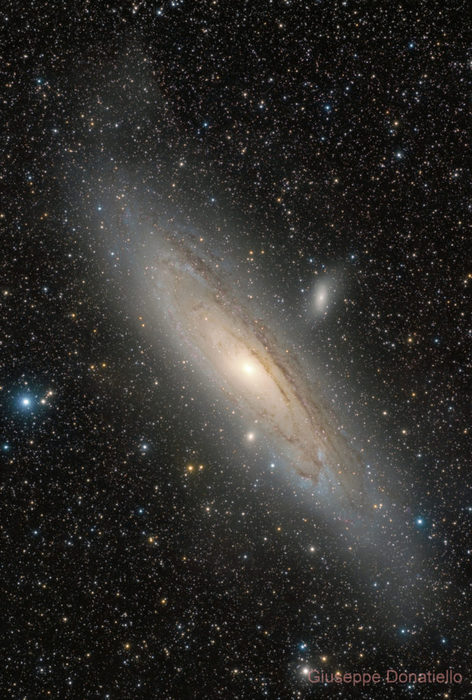Pisces VII is the name of the new galaxy discovered by the Apulian amateur astronomer Giuseppe Donatiello, head of the National Research Section 'Deep Sky' of the Italian Amateur Astronomers Union (Uai). Pisces VII, located about 3.2 million light years from Earth, is the fifth dwarf galaxy it has identified after Donatiello I (in 2016) and three new satellites of the galaxy NGC 253, found last year and named Donatiello II. III and IV.
The new discovery, valuable for better understanding galaxy formation, is published in the Monthly Notices of the Astronomical Society in collaboration with researchers from the Institute of Astrophysics of Andalusia (IAA-CSIC) led by David Martínez-Delgado.
"I found Pisces VII through the visual inspection in public images of the DESI Legacy Survey, precisely in order to identify new satellites in the Andromeda system, outside the areas already investigated in the past", says Donatiello. "I knew the likelihood of finding something new was real and I was right. It has been since 2013 that a new galaxy had not been found in the Andromeda subgroup."
After the discovery, the galaxy was observed by astronomer Walter Boschin with the 3.58-meter Galileo National Telescope (Tng), thanks to the discretionary time made available by the director Ennio Poretti. Using the excellent data collected, the team of astronomers determined the absolute magnitude and a first estimate of the distance, estimated at about 3.2 million light years. This estimate still has a margin of uncertainty.
If the distance were correct, Pisces VII would be a safe satellite of the Triangle Galaxy (better known as M33): it could therefore help to understand why the known satellites of the major galaxies are fewer than expected according to the standard Lambda-CDM cosmological model ( Lambda-Cold Dark Matter).
However, if Pisces VII were just farther than estimated, it would still be the most isolated dwarf known so far in the Local Group, that is, in the family of which Andromeda (M31) and our Milky Way belong.

